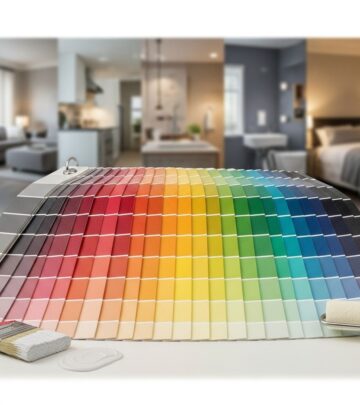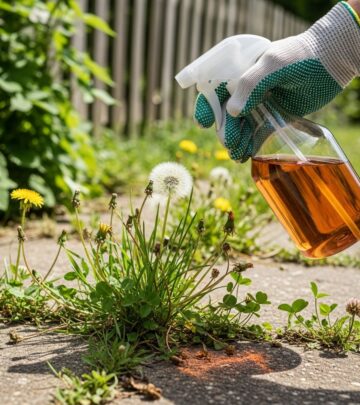Natural Ways to Get Rid of Ants at Home: Safe and Effective Methods
Eco-friendly remedies and prevention keep pests out and safeguard your living space.

Ant invasions are a common household nuisance, particularly during the warmer months when ants become more active in their search for food and shelter. While chemical insecticides can be effective, many people prefer natural methods to eliminate ants and prevent future outbreaks. These eco-friendly solutions are safer for children, pets, and the environment while remaining highly effective against persistent ant colonies. This comprehensive guide covers a range of natural ant control techniques, explains why they work, and offers practical tips for long-term prevention.
Why Choose Natural Methods to Get Rid of Ants?
Chemical ant killers often contain toxic substances that may pose significant health risks—especially to vulnerable family members and pets. Natural remedies harness the power of safe household items, essential oils, and simple management strategies to target ants without polluting your home environment. Many methods are easy to prepare and cost-effective, using ingredients you likely already have in your kitchen or pantry.
How Ants Invade Your Home
Ants are industrious creatures drawn to accessible food and water. They commonly enter through cracks in foundations, under doors and windows, or even via utility lines. Once inside, they quickly establish scent trails that direct other ants from the nest to their newfound food source, resulting in sudden and seemingly overwhelming infestations.
- Ants are attracted to crumbs, spills, open food, and pet bowls.
- Moisture and standing water also attract ants—especially in kitchens and bathrooms.
- Common entry points: wall gaps, window sills, foundation cracks, and utility penetrations.
Natural Ant Control: Effective Solutions You Can Try Today
Below are the most effective natural ways to kill and repel ants, with instructions and safety tips for each method. These cover both killing visible ants and deterring future visitors.
1. Borax and Sugar Ant Bait
Borax (sodium tetraborate) disrupts an ant’s digestive system, and when combined with sugar, it lures the ants to carry the toxic mixture back to their colony, wiping out the infestation at its source.
- Recipe: Mix 1/2 teaspoon of borax, 8 teaspoons of sugar, and 1 cup of warm water.
- Soak cotton balls in the mixture.
- Place cotton balls along ant trails and windowsills, out of reach of pets and children.
- Replace the cotton balls as needed until the ants disappear.
Note: Keep borax away from children and pets; ingestion can be harmful.
2. Diatomaceous Earth (Food Grade)
Diatomaceous earth (DE) is a fine powder made from fossilized algae, which kills ants by absorbing waxy oils from their exoskeleton, causing dehydration.
- Sprinkle a thin layer in areas where ants are active or around entry points.
- Only apply when surfaces are dry; moisture lessens its effectiveness.
- Avoid inhaling the dust and keep away from pets and children during application.
3. Essential Oils
Many essential oils contain potent compounds that ants find repellent or toxic. Here are the most widely recommended:
- Tea tree oil: Mix 5–10 drops in 2 cups of water, and spray anywhere ants are present.
- Saturate cotton balls with the solution and place them in affected areas.
- Lemon eucalyptus oil: Soak cotton balls in undiluted oil and position them near ant trails. Replace weekly for ongoing repellency.
- Peppermint oil: Combine with water or use in a blend for a pleasant scent and added effectiveness.
Safety Note: Essential oils are powerful; keep them away from children, pets, and never ingest.
4. Vinegar Spray
White vinegar disrupts ant scent trails and cleans surfaces, making it highly effective for both killing ants and deterring others from following the same route.
- Mix equal parts vinegar and water in a spray bottle.
- Spray directly onto visible ants, trails, and commonly used entryways.
- Wipe surfaces thoroughly; the strong smell dissipates quickly for humans but leaves an ant-repelling residue.
5. Citrus Peels
Orange and lemon peels contain natural oils that are toxic to ants.
- Grind peels, mix with water, and pour into ant mounds outdoor or use the mixture to wipe indoor surfaces.
- The scent masks pheromone trails, and oils actively repel or kill ants.
6. Boiling Water
If you discover ant mounds outside near your home, boiling water can provide immediate relief.
- Boil 1–2 gallons of water.
- Carefully pour over the mound, aiming for full coverage and depth.
- Repeat for each mound or entry point observed outdoors.
Use caution: Pour slowly and wear protective gear to avoid burns.
Tip: Add vinegar or dish soap to improve effectiveness and target the queen deeper in the mound.
7. Dish Soap and Water Spray
A solution of dish soap and water breaks down ants’ waxy outer layer, quickly killing them and interrupting pheromone trails.
- Mix 2–3 tablespoons of dish soap in 1 quart of water.
- Spray directly onto ants or problem surfaces; repeat as needed.
- For outdoor use, combine with hot water for increased penetration into nests.
8. Cinnamon
Sprinkling ground cinnamon along ant trails confuses and repels ants by blocking their chemical signals.
- Apply cinnamon powder along baseboards, entryways, or directly onto visible trails.
- Reapply after cleaning or after rain or moisture exposure.
9. Coffee Grounds
Used coffee grounds have been shown to deter ants and other insects.
- Sprinkle coffee grounds along suspected entry points or areas of activity.
- Replace grounds every few days to maintain potency.
10. Other Home Remedies
- Baking soda and powdered sugar: Mix equal parts and place small amounts where ants are active. Sugar attracts ants, while baking soda disrupts their digestive system.
- Chalk or baby powder: Drawing lines of chalk or sprinkling baby powder can block ants’ scent trails due to the talc content.
- Cucumber peels: Bitter cucumber peels placed near entry points have mild ant-repelling properties.
Homemade Fire Ant Killer: Step-by-Step Guide
Fire ants are particularly resilient, but several DIY solutions can provide lasting relief:
- Boil water, vinegar, and dish soap:
- Boil 1–2 gallons of water, add 1 cup of white vinegar, and stir in 2–3 tablespoons of dish soap.
- Pour the mixture slowly and carefully over the mound, ensuring deep penetration to reach the queen.
- Use diatomaceous earth or citrus peels: See steps above for guidance.
Safety Note: Always keep pets and children away from the treated area until it is completely dry.
Common Mistakes to Avoid
- Do not pour cold water into ant mounds—inadequate for effective treatment.
- Do not use bleach or harsh chemical cleaners; these can damage your soil, home, and health.
- Do not expect immediate total elimination—some ants may relocate and require repeated treatments.
Prevention: How to Keep Ants from Returning
Permanent ant control is best achieved by combining natural remedies with preventive measures. Take these steps to make your home less attractive and accessible to ants:
- Wipe down counters, sweep floors, and clean spills immediately.
- Store food in airtight containers—especially sugar, honey, and pet foods.
- Seal cracks in baseboards, window frames, doors, and foundations with caulk.
- Repair any plumbing leaks and eliminate sources of standing water.
- Trim trees and shrubs away from the exterior of your house.
- Keep outdoor garbage bins clean and tightly sealed.
Table: Quick Reference – Natural Ant Control Methods
| Method | How It Works | Where to Use | Safety |
|---|---|---|---|
| Borax & Sugar | Poisons colony by ingestion | Entry points, ant trails | Keep away from pets/children |
| Diatomaceous Earth | Desiccates ants by drying out exoskeleton | Trails, nest entrances | Avoid inhalation |
| Vinegar Spray | Breaks scent trails, repels ants | Surfaces, cracks, entry points | Safe when diluted |
| Essential Oils | Repels or kills by scent/toxicity | Cotton balls, spray on trails | Avoid skin contact, pets |
| Boiling Water | Kills ants on contact & soaks mound | Outdoor mounds | Use caution |
| Citrus Peels | Masks trails, poisons ants | Mounds, food prep areas | Generally safe |
| Cinnamon | Blocks trails, confuses ants | Baseboards, pantries | Safe |
| Coffee Grounds | Natural repellent | Entryways, trails | Safe |
Frequently Asked Questions (FAQs) About Natural Ant Control
Q: Why do ants keep coming back even after I clean?
A: Ants leave behind pheromone trails. Unless these are disrupted (e.g., with vinegar or soap), other ants will keep following the same path. Consistent cleaning and using ant repellents help stop new invasions.
Q: Are natural ant killers safe for pets and children?
A: Most natural remedies are safer than chemical insecticides, but some (like borax and certain essential oils) should still be used with caution. Always apply treatments in areas pets and children cannot access and follow instructions carefully.
Q: Do home remedies work as well as store-bought ant killers?
A: Many natural methods are highly effective, particularly for small to moderate infestations. However, persistent or severe infestations may require repeated applications or, in rare cases, professional help.
Q: What is the fastest way to kill ants naturally?
A: Boiling water poured over outdoor mounds and a vinegar-dish soap spray for indoor ants offer the quickest results.
Q: How long does it take for natural remedies to work?
A: Some methods (like boiling water) kill ants instantly, while baiting techniques (borax and sugar) may take several days to eliminate colonies entirely. Reapplication and patience are key for the best results.
Conclusion
Getting rid of ants naturally is entirely possible with simple household items and a little persistence. By employing safe deterrents, cleaning routines, and long-term preventive measures, you can maintain an ant-free home without resorting to toxic chemicals. Start with these proven methods and enjoy a healthier, cleaner space for you and your family.
References
Read full bio of Sneha Tete










